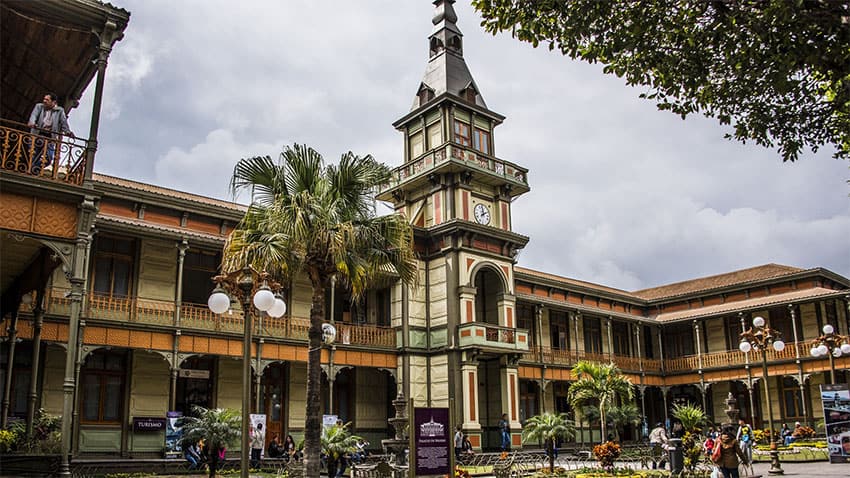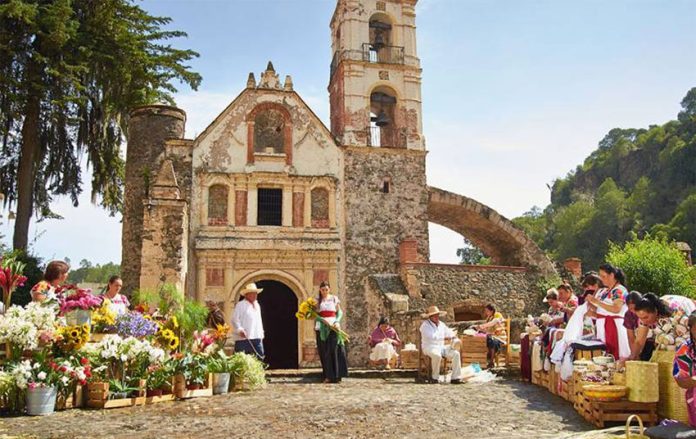The federal government’s decision to eliminate funding of Mexico’s Pueblos Mágicos has left some smaller Magical Towns struggling to promote themselves, maintain key infrastructure and provide essential services.
The mayor of Orizaba, Veracruz, and president of the National Network of Magical Town Mayors told the newspaper El Economista that “the budget cut for Magical Towns is concerning.”
Speaking during the inaugural Tianguis Turístico de los Pueblos Mágicos (Magical Towns Tourism Fair) in Pachuca, Hidalgo, Igor Fidel Rojí López called on the federal government to reinstate funding.
“. . . There are magical towns like Orizaba, Cholula [Puebla], and Pátzcuaro [Michoacán], that have medium-sized populations and which have . . . sufficient resources to provide municipal services but there are small towns, like Huasca de Ocampo [Hidalgo] with 19,000 inhabitants, that don’t have sufficient resources,” Rojí said.
“For example, this state [Hidalgo] doesn’t have a sufficient water network and that can bring [Huasca] to a halt because on a weekend, 100,000 tourists might arrive, leaving it without water . . . There are lots of cases like that . . .”

The government provided no funding for Mexico’s 121 Magical Towns in the 2019 budget and hasn’t allocated any resources for 2020 either. In 2018, the towns received 586 million pesos (US $30.6 million at today’s exchange rate) in federal funding.
Rojí said mayors are working with the tourism committees of both houses of federal Congress in an attempt to convince lawmakers to allocate resources to their towns in the 2020 budget.
Funding should be primarily aimed at towns that are struggling to find the resources required to carry out essential projects, he said.
Rojí said that the mayors are committed to dialogue with the federal government and ruled out any possibility that they might stage protests in Mexico City.
While calling for a resumption of federal funding for Magical Towns, the Orizaba mayor also said that municipal governments need to learn how to effectively raise their own revenue and use money wisely.
“. . . Orizaba collects its property taxes well; 95% of properties are up to date with their payments, the highest rate in the country and that’s because we provide the services that the law obliges us to, for example . . . drinking water, [street] cleaning, filling potholes, lighting,” Rojí said.
The mayor added that Orizaba raised a combined 37 million pesos from parking meters, municipal-owned public bathrooms and the renting out of public buildings.
“These resources of our own allow us to invest in tourism infrastructure . . .” Rojí said, adding that tourism has the capacity to transform residents’ lives.
“Orizaba has been transformed and has achieved greater development and economic growth,” since becoming a Magical Town four years ago, he said.
To improve promotion of the nation’s Pueblos Mágicos, the Mexican Association of Travel Agencies (AMAV) entered into an agreement with the National Association of Magical Towns Citizens’ Committees at the Pachuca fair.
AMAV president Eduardo Paniagua Morales said that towns in Quintana Roo, Veracruz, Tabasco, Nuevo León and Chiapas have made the most progress in developing tourism promotion strategies and will serve as an example for Magical Towns in other states.
Source: El Economista (sp)
